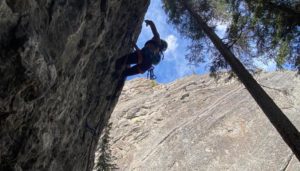Mid Season World Cup Check in
With four Boulder World Cups down, we are halfway through our season. Who will win and what have we learned so far?
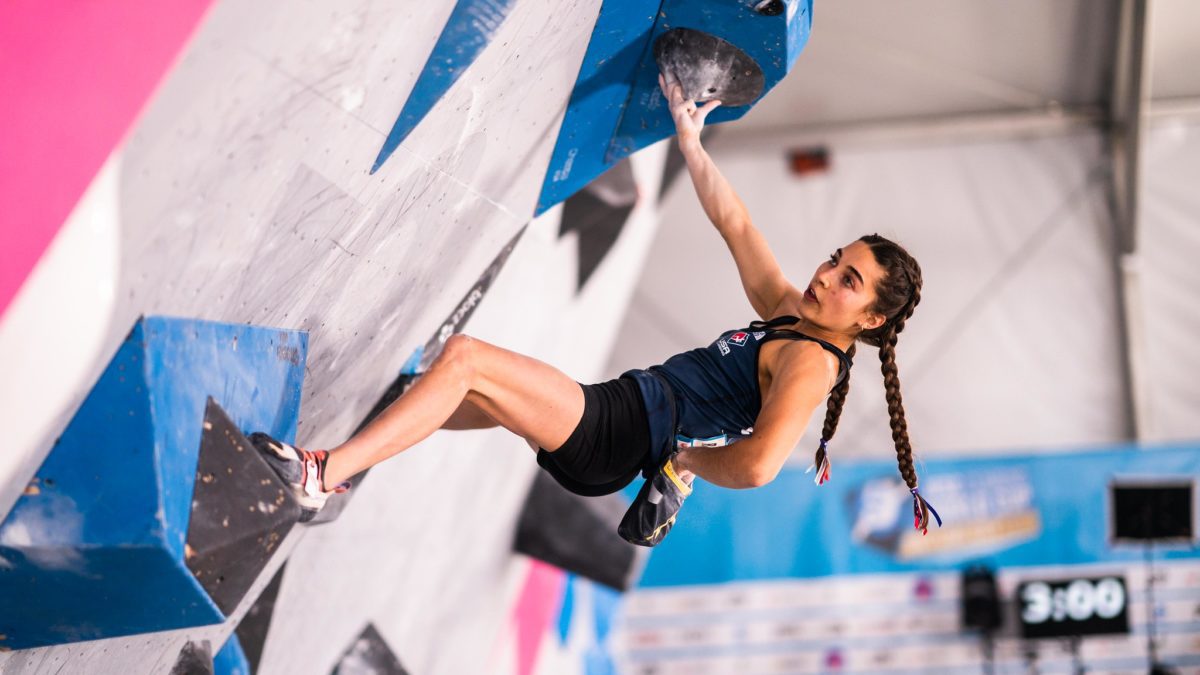
These last three months brought about a unique series of events unlike the pre-Olympic Boulder Series. Even 2019 differs from the dramatic exchange we saw in the last four Boulder World Cups. Japan’s domination remains, but the women’s field continues to change.
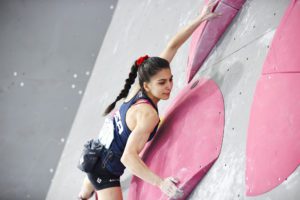
Women
The first big news of 2022 came from Janja Garnbret, climbing’s first Olympic gold medalist. After winning gold again at the Series opener in Meiringen, Garnbret decided to abstain from the remaining Boulder World Cups.
Her abstention left the door open for many athletes including France’s Oriane Bertone, America’s Natalia Grossman and Brooke Raboutou. Surprisingly, neither Raboutou nor Bertone made finals in Meiringen, but Grossman earned a quick silver medal.
It was expected that Grossman would win after Garnbret resigned. She did. At this point in the season, only teammate Raboutou could hope to challenge Grossman for the World Cup Series title. Grossman’s dominance is difficult to ignore.
In another world, her performance would be described as unimpeachable. The looming abstention of Garnbret’s participation, however, influences the manner by which the World Cup Series is described. There is a feeling the Garnbret will return to the stage in top form. Her absence is palpable. You can see it in the setting.
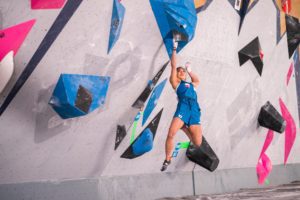
The modern competition route setter has many responsibilities, but separating the field is the priority. Doing so requires an analysis of the field. The first World Cup in Meiringen saw an exceptional round of boulders. In finals, Garnbret climbed all four in five attempts. Grossman climbed three but secured four Zones. The rest of the field could not manage more than a single Top and a few Zones.
When it comes to difficult boulders, the leaders are untouchable. This trend did not persist. As the setting style changed, Grossman appeared to finish closer to the rest of the field. It is unclear whether that is because the rest of the field increased in their ability or whether the boulders became easy enough for attempts to function as the key separator between the members of the field. Grossman sent all of the boulders in most of the rounds since Meiringen, but the rest of the field often has a climber or two that also sends all of the boulders or, at least, comes close.
In Salt Lake, however, Grossman had a couple of instances where she struggled to top all boulders. Still, her consistency remained intact with gold medals in both SLC World Cups. Although we may expect Grossman to top the leaderboard in every round, doing so does not necessarily help a person win gold in finals. As such, it is difficult to make projections.
Men
In the men’s field, Japan dominates. They have won all but three medals from the last four World Cups. Yoshiyuki Ogata will likely win the Series as the only male athlete to podium in all four World Cups this year. Rei Kawamata, Tomoa Narasaki, and Kokoro Fujii join Ogata as Japan’s medal winners. Only France’s Mejdi Schalck and Slovenia’s Anze Peharc have scored medals outside the Japanese team. Schalck earned the only non-Japanese gold medal.
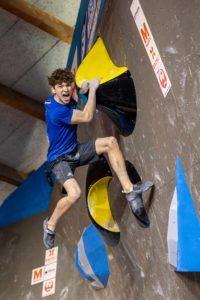
Japan is so hard to beat right now because they boast the most powerful, strongest, and most consistent athletes in the field. These superlatives are represented by Ogata, Fujii, and Narasaki. Only Mejdi Schalck stands out from the rest of the field as the most technically adept male climber. He still lacks consistency.
Schalck, much like Bertone and teammate Jenft, represents a developing crop of French teenagers that will replace the sport’s current leaders. Schalck is six years younger than Ogata, the youngest of Japan’s best. That said, Rei Kawamata is also 18-years old and will become a rival for the young French climber. He earned Bronze in Salt Lake. Rival is used loosely. Joining them, American Colin Duffy is another who has provided fairly consistent performances.
After the American Boulder Nationals, Lead Nationals, and Team Trials, Duffy looked like the best male athlete in America. That is probably still true, but he has not had luck this season. He is nearly unstoppable and is one of the teenagers to watch going forward.
With the Boulder World Cup Series hurtling toward its conclusion, it is difficult to presume an upcoming change in direction. With that said, Schalck could theoretically begin winning World Cups and, if he did, could challenge Ogata for the Series title.
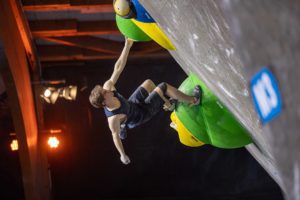
What’s more, Japan’s Miho Nonaka has improved every comp. A slow start gave way to her last two consecutive medal placements. The experienced athlete could very well out place Grossman given the right round. Still, she will not be able to beat the American for the Series title.
Canada
Finally, at home in Canada, this has been the most successful World Cup Series in years. Perhaps not from an individual perspective, but as a team, Canada has had someone into semis in each of the last four boulder World Cups.
Madison Fischer kicked us off in Meiringen, earning 10 place in her first World Cup. We have not seen her back on the field since, but she and Yip are Canada’s best boulderers. Alannah Yip continues to make semi-finals after her Olympic season. She scored 10 in Salt Lake. Sean McColl has also made semis, but is now out with an injury. Both appear capable of making more semi-finals.
Victor Baudrand and Guy McNamee also made semi-finals and finished in high placements. Baudrand earned ninth in Seoul while McNamee earned 15. What is most interesting about these two athletes is that, like Fischer, they both have power and power-endurance to spare. They are developing on the international stage and appear close to moving higher up in the field.
Their biggest issue is consistency. However, consistency in the men’s field is something to want for. It is difficult to attain and maintain. Regardless, they stand to climb well, as does Fischer, if only their participation in all events can be maintained.
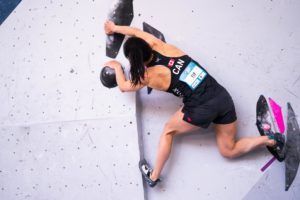
Featured image by Daniel Gajda
